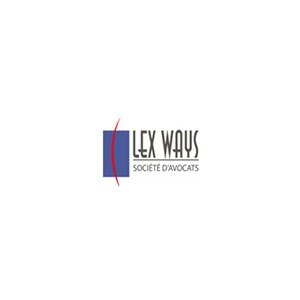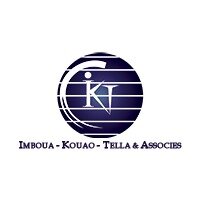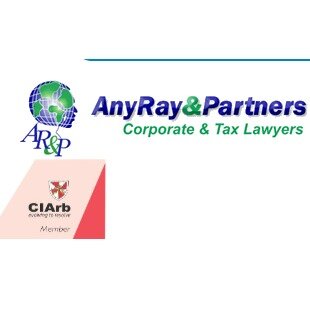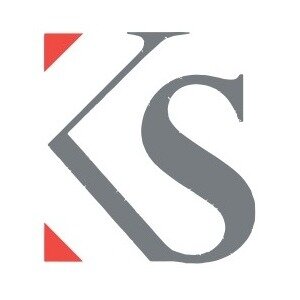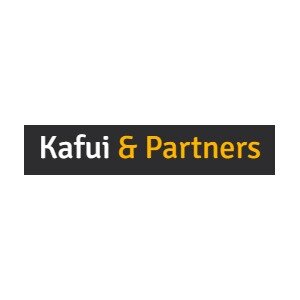Best Sanctions & Export Controls Lawyers in Ivory Coast
Share your needs with us, get contacted by law firms.
Free. Takes 2 min.
Or refine your search by selecting a city:
List of the best lawyers in Ivory Coast
About Sanctions & Export Controls Law in Ivory Coast
Sanctions and export controls are legal regimes that regulate the flow of goods, services, technology, and funds across national borders to ensure compliance with international law and national interests. In Ivory Coast, these laws are designed to reflect both domestic policy and international obligations, particularly as the country aligns itself with the directives of regional organizations such as ECOWAS and the African Union, as well as UN Security Council resolutions. The primary goal is to prevent illicit trade, safeguard national security, and comply with international sanctions lists. Ivory Coast's sanctions and export controls target areas such as arms, dual-use goods, sensitive technologies, and activities that may finance terrorism or circumvent international isolation measures.
Why You May Need a Lawyer
Legal issues involving sanctions and export controls can be complex and carry significant risks, including severe penalties and reputational harm. Common situations in which you may need legal help include:
- Establishing compliance frameworks for businesses engaged in international trade
- Dealing with investigations or enforcement actions related to violations of export controls
- Advising on the legality of transactions with countries or individuals subject to sanctions
- Navigating complex due diligence requirements for transactions involving sensitive goods or technologies
- Securing the necessary licenses and permits for lawful export or import of restricted items
- Challenging or appealing administrative decisions regarding denied permits or inclusion on sanctions lists
- Counseling multinational organizations about alignment of internal policies with Ivorian legal obligations
- Managing risks related to the extraterritorial application of foreign sanctions laws, such as those of the US or EU
Local Laws Overview
Ivory Coast’s legal framework for sanctions and export controls is shaped by a combination of domestic statutes, government decrees, and international commitments. Key aspects include:
- International Compliance: Ivory Coast implements sanctions and export control measures set out by the United Nations, and regional organizations such as ECOWAS.
- Licensing Regime: The government requires licenses for the export and import of certain controlled goods, especially arms and dual-use items.
- Customs Enforcement: The Directorate General of Customs monitors and enforces the movement of goods subject to controls, working closely with law enforcement agencies.
- Reporting Obligations: Companies and individuals are often required to provide detailed documentation to demonstrate compliance with applicable laws.
- Monitoring and Penalties: Violations can result in administrative penalties, fines, criminal prosecution, and the suspension or revocation of trading privileges.
- Alignment with International Directives: Ivory Coast's authorities regularly update their lists of controlled goods and embargoed entities to align with evolving global practices.
Frequently Asked Questions
What is the purpose of sanctions and export controls in Ivory Coast?
These laws are designed to protect national security, prevent illegal trade, and ensure the country’s compliance with international obligations regarding embargoes and restricted entities.
Do I need a license to export goods from Ivory Coast?
Certain goods, particularly arms, chemicals, and dual-use items, require export licenses. Check with the Directorate General of Customs to determine if your goods are subject to such controls.
What are the penalties for violating export controls or sanctions laws?
Penalties may include substantial fines, criminal prosecution, confiscation of goods, and the suspension or loss of business licenses.
Are there specific countries or individuals I am not allowed to trade with?
Yes, there are lists of embargoed countries and sanctioned individuals aligned with UN and regional directives. Engaging in trade with these entities is prohibited without a special waiver.
How can I check if a product is subject to export controls?
Consult the list of controlled goods published by the relevant government department or contact legal counsel experienced in sanctions and export controls for guidance.
Who enforces sanctions and export controls in Ivory Coast?
The Directorate General of Customs and relevant law enforcement agencies are primarily responsible for enforcement, in collaboration with ministries dealing with foreign affairs and trade.
Can I appeal a denied export license application?
Yes, there is usually an administrative appeals process. Legal advice is highly recommended to navigate this process effectively.
What are dual-use goods?
Dual-use goods are items that can be used for both civilian and military applications, such as certain chemicals or electronics. These are tightly regulated under Ivorian law.
Are financial transactions also subject to sanctions controls?
Yes, financial transactions with sanctioned countries, individuals, or organizations are subject to restrictions. Compliance with anti-money laundering and counter-terrorism laws is also crucial.
What international bodies influence Ivory Coast’s sanctions policies?
The UN, African Union, and ECOWAS are principal influences, as Ivory Coast aligns its laws with their sanctions and embargo decisions.
Additional Resources
For further information and support regarding sanctions and export controls in Ivory Coast, consider reaching out to:
- Directorate General of Customs (Direction Générale des Douanes)
- Ministry of Foreign Affairs
- Chamber of Commerce and Industry of Côte d’Ivoire
- Embassy or consulate of your home country
- Regional offices of the United Nations and ECOWAS
- Accredited legal practitioners specializing in international trade and customs law
Next Steps
If you need legal help related to sanctions and export controls in Ivory Coast, consider the following steps:
- Identify and gather all documentation related to your trade activities or the issue in question
- Seek consultations with qualified legal professionals who have proven experience in sanctions and export controls law
- Reach out to relevant government bodies to clarify procedural requirements or obtain official guidance
- Monitor official updates on laws and regulations from government websites and international bodies
- If you are facing imminent penalties or enforcement actions, prioritize urgent legal assistance to protect your rights and interests
- Develop internal compliance programs for your business to reduce the risk of future violations
Taking swift and informed action with professional guidance is key to navigating the complexities of sanctions and export controls law in Ivory Coast.
Lawzana helps you find the best lawyers and law firms in Ivory Coast through a curated and pre-screened list of qualified legal professionals. Our platform offers rankings and detailed profiles of attorneys and law firms, allowing you to compare based on practice areas, including Sanctions & Export Controls, experience, and client feedback.
Each profile includes a description of the firm's areas of practice, client reviews, team members and partners, year of establishment, spoken languages, office locations, contact information, social media presence, and any published articles or resources. Most firms on our platform speak English and are experienced in both local and international legal matters.
Get a quote from top-rated law firms in Ivory Coast — quickly, securely, and without unnecessary hassle.
Disclaimer:
The information provided on this page is for general informational purposes only and does not constitute legal advice. While we strive to ensure the accuracy and relevance of the content, legal information may change over time, and interpretations of the law can vary. You should always consult with a qualified legal professional for advice specific to your situation.
We disclaim all liability for actions taken or not taken based on the content of this page. If you believe any information is incorrect or outdated, please contact us, and we will review and update it where appropriate.
Browse sanctions & export controls law firms by city in Ivory Coast
Refine your search by selecting a city.



